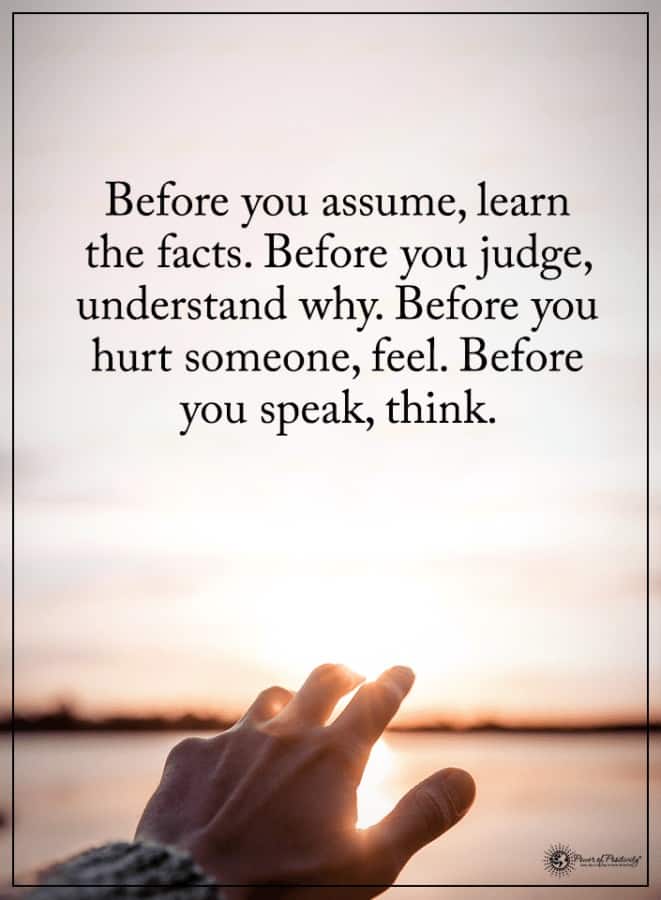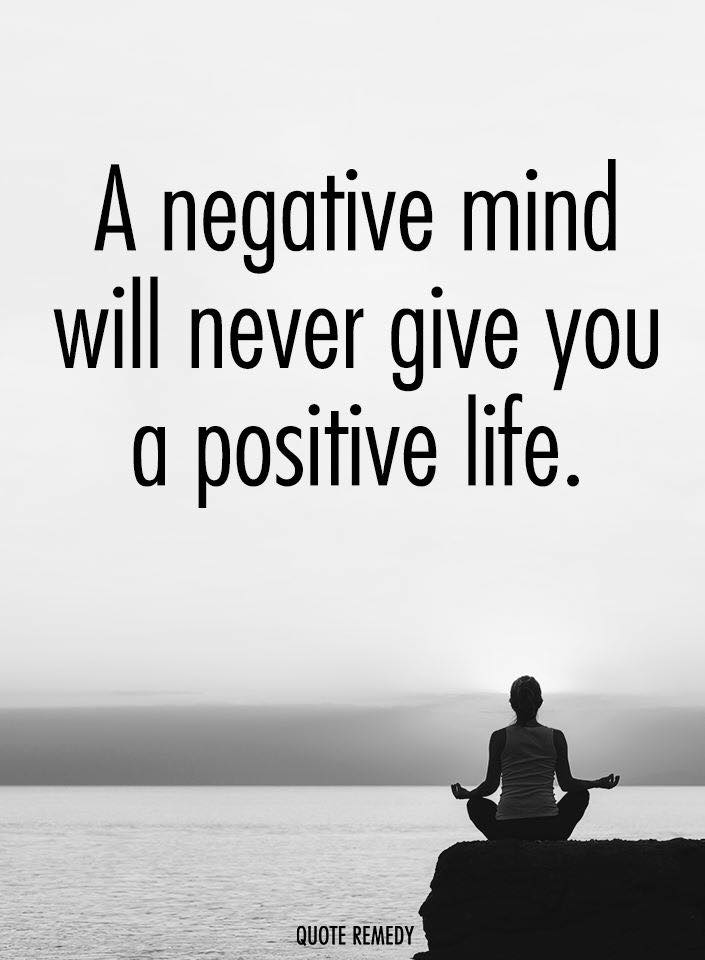Do you usually find it hard to stop feeling guilty after making a mistake?
It’s common knowledge that one must care for their mental health. Feelings such as regret, stress, and guilt can all add unnecessary strain to your brain. Unfortunately, a lot of mental health issues come from conditions, disorders, imbalances, or even just thoughts that can come with guilt and shame.
This propensity means that on top of everyday guilt you may feel, you might also feel guilty for thinking about or trying to resolve that guilt. It’s a never-ending paradox! Luckily, there are ways to break out of this challenging thought cycle before you spiral too far. Here are 13 ways to stop feeling guilty and retain your mental health:
1. Locate The Root
It’s essential first to identify what exactly is causing the feelings of guilt, and how it manifests. Until you understand where it’s coming from and the way it affects you, you can’t possibly start engaging in positive thinking strategies and heal from such guilt and hurt. Here are a few ways to try identifying the root cause of your guilt:
- Get some help from professionals that specialize in emotion-based therapies, like Dialectical Behavior Therapy – which is scientifically proven to help
- Set aside some time to dissect and analyze why you’re feeling guilty, and what’s causing it
- Pay attention to how you process guilt physically, and what triggers it to happen
2. Decide Your Limits Now to Stop Feeling Guilty Later
Placing limits and setting boundaries are both highly essential things, but you might not realize just how crucial they are to one’s mental and emotional health. As it turns out, studies determined that establishing and enforcing limits and boundaries are vital if you want to maintain a positive mindset of any kind.
You can try doing this yourself by:
- Decide what you’re willing to do, and how far you will go to help.
- Be authentic to both those around you and yourself about your willingness and capabilities.
- Do your best, but do be realistic about what you can and will want to handle.
- Maintain open communication with those you love, so they have a clear understanding of what your limits are
3. Communicate With Those Involved, If Any
The importance of open and active communication lines cannot be understated. To maintain positive relationships with both yourself and those around you, you must talk about what’s happening and how you feel about things. Only then can you possibly resolve whatever it is that is making you feel guilty and hurt.
Need some concrete tips to work off from? Here are a few to start with:
- Be direct in obtaining as much information as you want or need
- Ask people about how they are doing, instead of trying to guess
- Openly discuss your wants, needs, desires, and expectations.
- Bring up problems if you have any, along with any solutions you might have
4. Put Yourself In Someone Else’s Position
When you struggle with self-directed positive thinking and kindness, it can be hard to forgive yourself when you make a mistake. This weight you carry is not just hurtful for you, but also those around you, as they will be affected negatively – whether you intend it or not. Here are a few ways to avoid that, and to instead learn to be kinder to yourself first:
- Extend yourself the same grace, and benefit of the doubt, you would people you love
- Consider how you would react if your loved one were in a similar situation, and whether you’d want them to internalize their emotions in the same way
- Apply the same kind of compassion and understanding you would give other to yourself
5. Focus On What Is To Come
It’s easy to end up being stuck in the past of how it all went wrong. Instead of letting your guilt eat away at you, however, it’s healthier to try the following practices:
- Focus on the present, and what is available and open in front of you in the here and now
- Look to the future, and try to consider the possibilities there
- Learn what lessons you can garner from your mistakes, then move on
- Focus on using your experience to push you towards positive changes
6. Practice Self-Gratitude
Guilt often creates a negative bias in us and filters our actions and achievements through a harmful, perfectionistic mindset. On the other hand, gratitude has been proven by research to actively combat such hurtful behavior – which is what you’ll need to take care of your own mental and emotional health.
- Write down your successes and accomplishments.
- Note down all goals you’ve successfully achieved or furthered that week.
- Pay attention and jot down when you’ve helped someone.
When you get things down in writing, you force yourself to focus on the positives and the concrete, undeniable proof of your accomplishments! This will help you release your anxiety on the paper and stop feeling guilty inside.
7. Learn guilt Doesn’t Mean You’re Wrong – And If It Does, You Can Forgive
It’s easy to feel guilty in reaction to people’s behavior – even when you haven’t done anything wrong. Unfortunately, many of us are already conditioned to think that guilty feelings come only from guilty behavior. Instead of wallowing in such beliefs, try:
- Learning how to say “no”
- Set boundaries and prioritize your mental health
- Forgive yourself
- Make amends, if you think they’re necessary
- Commit to making positive changes in your attitude and behavior
8. Learn From Mistakes
After making a mistake, it can be tempting to simply spend our time wallowing in it and beating ourselves up. Many of us somehow see this as proof that we indeed were right all along, and that all the negative thoughts we had about ourselves were real.
The reality is that this is all simply twisted thinking that’s aimed at hurting yourself and does no one any favors. Instead of wallowing in guilt, try to:
- Accept and acknowledge your mistakes.
- Focus on what measures you can take to amend it
- Forgive and move on, if there is nothing else you can do
9. Stop Throwing Blame Around
Things will inevitably go wrong, as they are wont to do. It just can’t be helped. It is effortless, however, to want to blame someone when things start going south – and if there isn’t a clear, external target, then the easiest one is often ourselves.
This, of course, is taking responsibility where you shouldn’t. In reality:
- There are often a lot of opposing factors at play, and many of them will naturally be outside your reach.
- You shouldn’t try to bear or push all of the blame onto yourself or others, especially if it’s not your fault.
- Feeling guilty isn’t productive behavior, and resolves nothing.
Instead, it’s best to accept that adverse outcomes sometimes will happen, regardless of your best efforts, and try to push forward and fix things as you go.
10. Dedicate Time To Guilt
Trying to ignore things doesn’t help, either. Studies prove that trying to suppress one’s emotions can worsen anxiety and depression, especially after a distressing event. So instead of trying to downplay it or push it to one side, consider:
- Practice meditation, and allow your negative thoughts and emotions to come and go without clinging on to them
- Set aside some time to feel guilty, and then try to remedy the problems that caused those guilty feelings
- Learn how to acknowledge your emotions, before forgiving and moving on
11. Take A Break
Sometimes, you just have to cut yourself some slack and truly take a proper break. It can be more natural to fixate on the tasks we should be doing, and hold ourselves up to a level of perfectionism that isn’t healthy or possible. Studies have shown, however, that taking a break – both short ones and longer vacation breaks – can help us rest and recover. From there, we are recharged and ready to do better!
Here are a few things to keep in mind on a break:
- Avoid the idea of being productive during your break
- Remind yourself that science is on your side – it’s vital for your health
- Remind yourself as to why you needed a break in the first place, and why you took it
12. Understand The Social Effects Of Guilt
None of us exist in a vacuum – so it should come as no surprise that we are all influenced by societal and cultural expectations placed upon us. As a result, the guilt you feel may stem from socialization.
Studies reveal that socialization is responsible for higher amounts of guilt in women. You might find yourself burdened with:
- The need to not hurt anyone’s feelings
- The emotional responsibility of keeping contact between friends and family
- The responsibility of staying atop everyone’s schedules
- The responsibility of effectively maintaining household functions
If you find yourself feeling guilty over such things, remind yourself that these are all unfair expectations that have been passed down and ingrained into you. In reality, there’s no need to take responsibility for all of that – it should be labor shared between you and your loved ones, not you alone.
13. Know That It’s Okay To Take Care Of Yourself Too
It’s hard to shake off the need to take on responsibilities and care of others while neglecting your own needs in the process. This is especially so if you’ve had a difficult time growing up, and found yourself having to take on such a substantial role at a young age.
In reality, being human means taking care of your wants and needs – and having others fulfill them for you too. Here’s how you can do it:
- Remember that your thoughts and emotions are just as valid as that of those around you.
- Don’t silence your own needs; should they arise.
- Communicate your wants and desires to your loved ones
- Ask for help or fulfillment of your desires.
- Learn how to relax, destress, and let others take care of you
- Draw up healthy emotional boundaries and create them
- Prioritize your strength and resources first
 Final Thoughts On Some Ways To Stop Feeling Guilty And Retain Your Mental Health
Final Thoughts On Some Ways To Stop Feeling Guilty And Retain Your Mental Health
There is nothing wrong with needing to take care of yourself. There is nothing wrong about making mistakes in life, as long as you atone for them. And there is nothing wrong with learning to better yourself in order to overcome intense feelings of guilt! Don’t let your brain and heart lie to you and stop you from working on easing guilty feelings. You’ll be much happier without their burden.



















